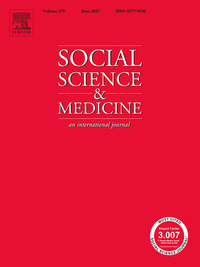Photo by Allen LEONARD
Published in Social Science and Medicine

About the study
The private use of abortion medication outside of the formal healthcare setting is an international phenomenon. Despite new and expanding pathways to abortion access, we know little about how women's perceptions and experiences of abortion may also be changing. This study examines the embodied experiences of 68 women who sought abortion services in Northern Ireland and the Republic of Ireland. Social stigma and restrictive abortion laws were major barriers to care at the time of study, providing the opportunity to explore the ways biological, social, and structural factors shape embodiment.
Findings
Women who obtained an abortion either traveled abroad for clinical care or self-managed a medication abortion at home. Those who traveled most often emphasized legal and medical risks of abortion at home, while those who self-managed emphasized social, financial, and emotional risks of pursuing clinical abortion care abroad. Given the increase in reproductive self-care alternatives, these findings situate self-managed abortion in the literature of (de)medicalization and reveal the ways technology and structural factors shape perceptions and beliefs about pain, the fetus, method, and physical environment. For some, self-managed medication abortion may be a preferred pathway to care. Policies that consider medication self-management as part of a spectrum of legitimate options can improve abortion access for marginalized groups while also offering an improved abortion experience for those who prefer medication abortion and an out-of-clinic environment.
